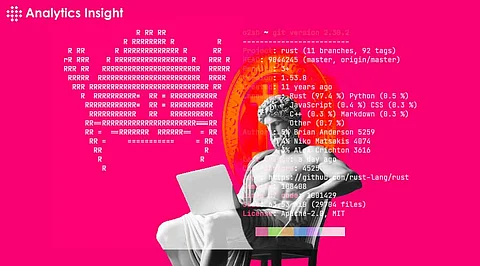

Understanding different programming paradigms is crucial for becoming a versatile and skilled developer. Each paradigm offers unique approaches to problem-solving and can greatly influence how you write and structure your code. As we head into 2024, mastering a variety of programming paradigms can enhance your ability to tackle diverse programming challenges and contribute to various types of projects. Here’s a guide to the top programming paradigms you should consider mastering this year.
Object-Oriented Programming is one of the most widely used paradigms in software development. It focuses on organizing code into objects that encapsulate data and behaviors. OOP principles include inheritance, encapsulation, polymorphism, and abstraction.
Classes and Objects: Fundamental building blocks that define and create instances with properties and methods.
Inheritance: Mechanism to create new classes based on existing ones, promoting code reuse.
Encapsulation: Restricting access to certain details and only exposing necessary parts of an object.
Polymorphism: Ability for different classes to be treated as instances of the same class through a common interface.
Essential for many popular languages like Java, C++, and Python
Helps in designing scalable and maintainable code
Widely applicable in software development and enterprise applications
Functional Programming is a paradigm that treats computation as the evaluation of mathematical functions and avoids changing state or mutable data. It emphasizes the use of pure functions and higher-order functions.
Pure Functions: Functions that always produce the same output for the same input and have no side effects.
Immutability: Data that cannot be modified after creation, promoting safer and more predictable code.
Higher-Order Functions: Functions that can take other functions as arguments or return them as results.
First-Class Functions: Functions that are treated as first-class citizens, meaning they can be passed around and used as arguments.
Enhances ability to write concise and predictable code
Useful in languages like Haskell, Scala, and functional aspects of JavaScript
Improves skills in handling complex data transformations and concurrent programming
Procedural Programming focuses on creating procedures or routines that operate on data. It emphasizes a step-by-step approach to solving problems by executing sequences of statements.
Procedures/Functions: Blocks of code that perform specific tasks and can be called multiple times.
Variables: Data storage locations that can be modified and used by procedures.
Control Structures: Constructs such as loops and conditionals that control the flow of execution.
Foundational for understanding more complex paradigms
Widely used in languages like C, Fortran, and Pascal
Important for writing efficient and straightforward algorithms
Foundational for understanding more complex paradigms
Widely used in languages like C, Fortran, and Pascal
Important for writing efficient and straightforward algorithms
Declarative Programming focuses on expressing the logic of computation without describing its control flow. It emphasizes what the program should accomplish rather than how.
Declarative Statements: Statements that specify what to do, rather than how to do it.
Query Languages: Languages like SQL that specify what data to retrieve without detailing how to retrieve it.
Configuration Management: Tools like Ansible and Terraform that define infrastructure in a declarative manner.
Useful in domains like database queries and configuration management
Simplifies complex operations by abstracting implementation details
Enhances skills in working with high-level abstractions and domain-specific languages
Logic Programming is based on formal logic and involves writing programs as a set of logical statements. It focuses on defining facts and rules and uses inference to solve problems.
Prolog: A prominent logic programming language used for tasks involving symbolic reasoning.
Rules and Facts: Definitions that describe relationships and knowledge in a domain.
Inference Engine: Mechanism that derives conclusions based on the rules and facts provided.
Valuable for applications in artificial intelligence and symbolic reasoning
Provides a unique approach to problem-solving and knowledge representation
Enhances understanding of formal logic and automated reasoning
Event-driven programming is centered around responding to events such as user interactions or system triggers. It involves writing code that reacts to specific events and handles them asynchronously.
Event Handlers: Functions or methods that execute in response to specific events.
Event Loops: Mechanisms that wait for events to occur and dispatch them to the appropriate handlers.
Asynchronous Processing: Techniques to manage tasks that run concurrently with the main application flow.
Essential for building interactive applications and user interfaces
Widely used in front-end development and real-time systems
Improves skills in handling asynchronous operations and event management
Mastering various programming paradigms is crucial for becoming a versatile developer. Each paradigm offers unique approaches to problem-solving and can enhance your ability to tackle different programming challenges. By understanding and applying Object-Oriented, Functional, Procedural, Declarative, Logic, and Event-Driven programming paradigms, you'll be well-equipped to excel in diverse coding environments and projects. Embrace these paradigms in 2024 to broaden your programming skills and stay ahead in the ever-evolving tech landscape.
